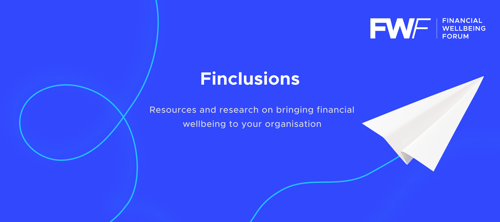A scarcity mindset can make your employees disengaged and disconnected - but there are ways to mitigate its effects.
Scarcity refers to the economic concept that resources are limited, and therefore, not all wants and needs can be wholly satisfied.
Essentially, it's the condition where demand exceeds available supply. This concept is a driving force behind economic decision-making in all areas of society - from the commercial, to the social, and evidently, the financial. The scarcity mindset is the psychological state that individuals experience when they recognise a lack of whatever commodity they are seeking - be it an object, a relationship, an opportunity, and so on.
The workplace demonstrates several common variations of the scarcity mindset in action - and establishes some of the ways in which this distracts and disconnects employees from work.
Key takeaways
Scarcity mindset
Can occur in many forms in the workplace
Financial scarcity
Can have a significant impact on worker mental health and wellbeing
Financial wellbeing toolkits
Are a powerful tool for employers to offer their people, to mitigate the effects of financial scarcity
Scarcity of opportunity
The scarcity mindset can impact employees when they feel as though the opportunities for growth and success within their organisation are limited or dwindling; there are several factors that could contribute to this impression for a worker - for instance, a collection of promotions within their peer group, or the distribution of exciting projects to other colleagues in the business, which lead them to feel that positive opportunities are scarce.
The issue this can present is via the psychological impact that this perspective can have on the employee in question, and by consequence, on their work. In this instance - employees can begin to become over-competitive with their peers, prioritise instant-wins over long-term success, or sacrifice teamwork in order to gatekeep their own achievements - obvious detriments to the productivity of a team or business.
This kind of mindset can be mitigated with processes and benefits in the workplace designed to support and encourage growth opportunities and career development - coaching and mentoring programmes, clear and defined progression journeys, and accessible learning, development and upskilling - amongst several others.
Financial scarcity
What lies somewhere between material scarcity (eg. products) and non-material scarcity (eg. opportunities), and is perhaps the most pertinent example of this mindset in action, is money.
Work and money are both intrinsically linked; however, it might not be immediately evident how financial concerns and fears of scarcity directly affect work performance.
With the backdrop of the ongoing Cost of Living Crisis, fears of financial scarcity have become rife, which is unsurprising in an environment where people’s incomes are struggling to keep up with their outgoings.
-2.jpg?width=500&length=500&upsize=true&upscale=true&name=9221%20(1)-2.jpg)
How are fears of financial scarcity disconnecting my workforce?
1. Fears of financial scarcity might lead an employee to feelings of anxiety around affording their commute to work - as a result they may fall back on absenteeism as a means to save on this cost.
2. Fears of financial scarcity could generate a reluctance for an employee to invest (not only money, but time) into their personal and professional development - as a result they can limit their progression opportunities (and the opportunity to contribute more value to the business) and cap their earning potential.
3. Fears of financial scarcity can create feelings of stress and anxiety that have a significant impact on mental health and wellbeing - data shows that workers can lose up to 13 IQ points when facing money worries - a statistic which speaks for itself when demonstrating how money worries can impact workplace productivity.
Limiting fears of financial scarcity as an employer
There is no perfect solution to supporting staff with their finances, and often it is the multi-pronged approaches, those which promote choice and flexibility, that are most valued by teams. Education obviously plays a huge role in building financial confidence in your workforce, as well as transparent and accessible money-adjacent policies (pensions, parental leave, sick leave, etc), to establish clarity and peace of mind for staff.
However, education and policies are not enough to create a winning financial wellbeing strategy; practical and interactive solutions are often more highly valued by teams, as these allow the creation of bespoke financial wellbeing toolkits which suit their needs. Flexible pay specifically is an essential tool when it comes to managing fears of financial scarcity, as it allows employees to choose when they get paid and manage budgeting and outgoings more simply. By providing flexible access to pay - the fear of a ‘lack’ that often drives the scarcity mindset can be mitigated.
Want more research and resources like this, straight to your inbox?

